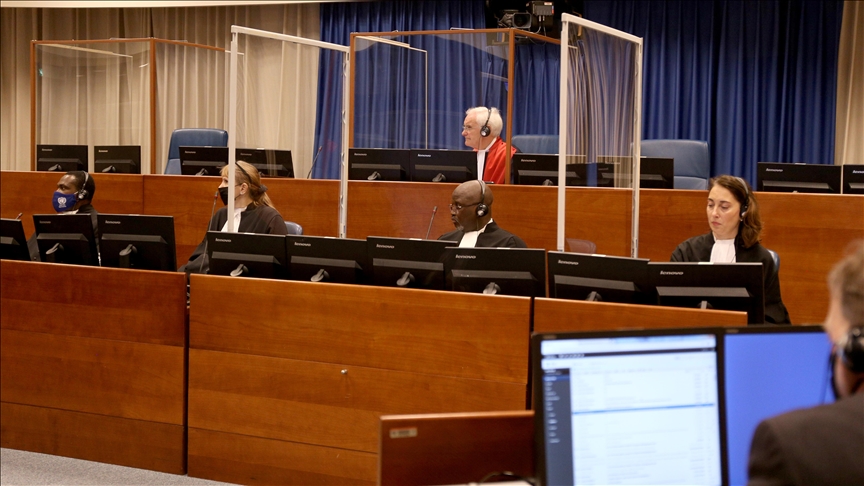Rwandan genocide ‘financier’ declared unfit for trial
Trial Chamber finds Felicien Kabuga 'no longer capable of meaningful participation in his trial'

KIGALI, Rwanda
Judges at the UN crimes court in The Hague announced Wednesday that Rwandan suspected genocide financier Felicien Kabuga is ‘unfit’ to stand trial.
Kabuga’s trial opened in September last year before the tribunal, more than two years after his arrest in France.
Judges ruled that based on a report of three court-appointed medical experts “Mr. Felicien Kabuga is unfit to participate meaningfully in his trial and is very unlikely to regain fitness in the future.”
The medical experts said that Kabuga's cognitive and physical functions have progressively and significantly deteriorated since the pre-trial stage due to “severe dementia.”
The judges concurred with the experts that participation in a complex proceeding, such as the present trial requires, at a minimum, a functioning memory, including the ability to retain information over a period of time, as well as the ability to process and express a view about that information.
In an order, the International Residual Mechanism for Criminal Tribunals said it wanted to “adopt an alternative finding procedure that resembles a trial as closely as possible, but without the possibility of a conviction.”
This, the court said, was important to victims, survivors and the international community to see the genocide crimes against Kabuga still addressed in court.
Kabuga would not be required to attend the alternative legal process.
Kabuga, a major figure accused of having been genocide financier, refused to attend the opening of the trial and followed subsequent proceedings via video-link at the court's detention center.
From the opening Kabuga's lawyers said he was unfit to stand trial but the court initially dismissed the argument and continued with the proceedings.
He was arrested in Paris in May 2020 after 26 years of manhunt.
Court playing into hands of Kabuga to 'evade justice'
Kabuga, 88, was charged with genocide, direct and public incitement to commit genocide, conspiracy to commit genocide, and persecution on political grounds, extermination, and murder as crimes against humanity, committed in Rwanda in 1994.
He is accused of playing a role in establishing the notorious hate Radio-Television Libre des Mille Collines (RTLM) which incited people to kill the Tutsi population.
He pleaded not guilty to the charges.
Rwandan genocide scholar Tom Ndahiro said the court’s decision “played into the hands of Kabuga’s tactics to evade justice.”
“He evaded justice for many years, once caught this is the only tactic he can use to evade justice. If he had the capacity to hide for years without being arrested then how can he fail to participate in a court proceeding,” Ndahiro told Anadolu.
Kabuga’s primary contributions to the crimes included creating and operating RTLM, and financing, arming and supporting the feared Interahamwe militia, according to prosecution.
Ndahiro said that Kabuga had a central role in provoking hatred of Tutsis and dehumanizing innocent civilians in the lead up to the genocide.
In August 1998, Kabuga was indicted by the now-defunct Tanzania-based International Criminal Tribunal for Rwanda (ICTR) and an international arrest warrant was issued for him the next year.
The genocide, in which more than one million people were killed, targeted minority Tutsi ethnic group by Hutu extremists after the death of former Rwandan President Juvenal Habyarimana and Burundian counterpart Cyprien Ntaryamira in a plane crash on April 6, 1994.








